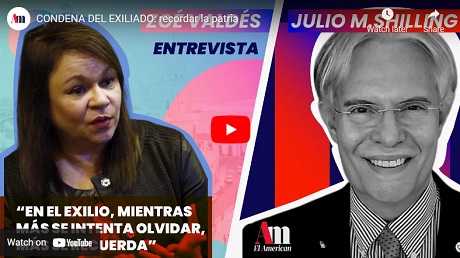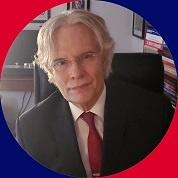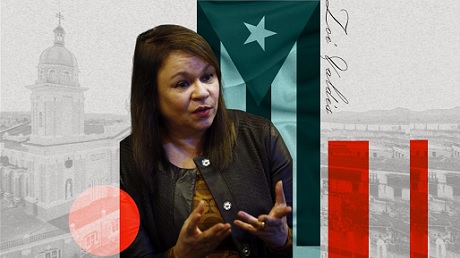‘In Exile, The More You Try To Forget, The More You Remember’: Cuban Writer Zoé Valdés
AUTHOR AND TOMÁS LUGO
AS PART OF OUR series of short interviews, our contributor Julio M. Shiling talked with award-winning Cuban writer, poet, screenwriter, columnist and staunch defender of freedom Zoé Valdés about her career as an author and her history of struggle against the Castro brothers’ communist regime.

However, she believes that, far from benefiting her publicly, her experience as a victim of the dictatorship has been detrimental in her case. Valdés states that, given the volume of her voice and the editorial importance she has acquired over the course of her career, the enemies of freedom have taken a much more aggressive stance against her.
The writer explained that fearing the dictatorship, she lived a large part of her career in silence. She kept quiet about the harm the Cuban oppressors inflicted on her fellow countrymen. When she grew tired of keeping quiet, she wrote a novel that ended up banishing her. Since then, she has not been allowed to enter her home country ever again.
“I lived a long time, 30 years of my life, under a lie. Damaged by lies,” Valdés expressed, regretting the possible damage he inflicted through her silence. “It was necessary to lie, it was necessary to pretend, it was necessary to use a double language. And one day I decided, through writing, through La Nada Cotidiana, to tell the truth in the best possible way,” she says.
“I left Cuba very tired of everything. I left so fed up that what I wanted was to forget everything,” the poet said. “But in this process of exile, the more you try to forget, the more you remember.”
She said that since she began using her voice to denounce the disaster caused by the Cuban dictatorship, an employee of the Cuban embassy tried to assassinate her at a bus stop and, on another occasion, they tried to poison her with coffee during a literature fair. Her house has also been ransacked and she has been persecuted in several countries around the world.
The influence of the Cuban dictatorship is also reflected in the media to prevent the publication of her opinions, closing the doors on her talent too.
One of the examples she gave in the interview was the opportunity to shoot a film of La Nada Cotidiana with renowned filmmaker Martin Scorsese, but since her agents insisted that the film be shot in Cuba and she refused to make changes to the novel, the project ended up being discarded.
That, however, has not stopped the ferocity of Valdes’ voice in favor of freedom in her country nor the morality to remain loyal to her principles.
©The Cuban American Voice and "El American". All rights reserved. Reproduction is prohibited without express permission.
 🖋️Author Julio M. Shiling
🖋️Author Julio M. Shiling
Julio M. Shiling is a political scientist, writer, columnist, lecturer, media commentator, and director of Patria de Martí and The CubanAmerican Voice. He holds a master’s degree in Political Science from Florida International University (FIU) in Miami, Florida. He is a member of The American Political Science Association, The PEN Club (Cuban Writers in Exile Chapter) and the Academy of Cuban History in Exile.
Follow Julio on:
📚Published books 📺In the media 👨🏫 Conferences and Symposiums 🎙️Podcast The Shiling Summary


